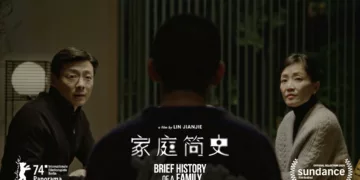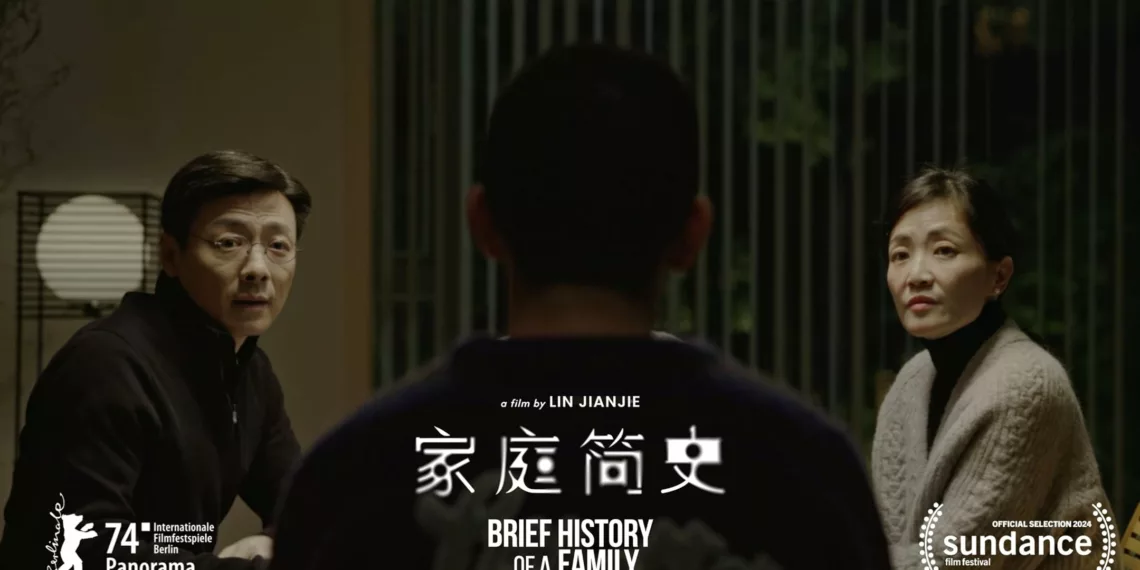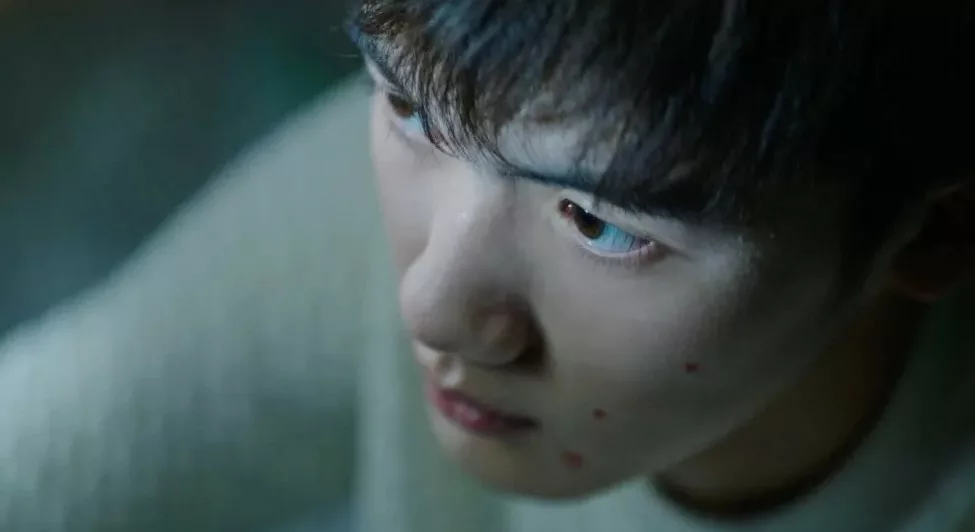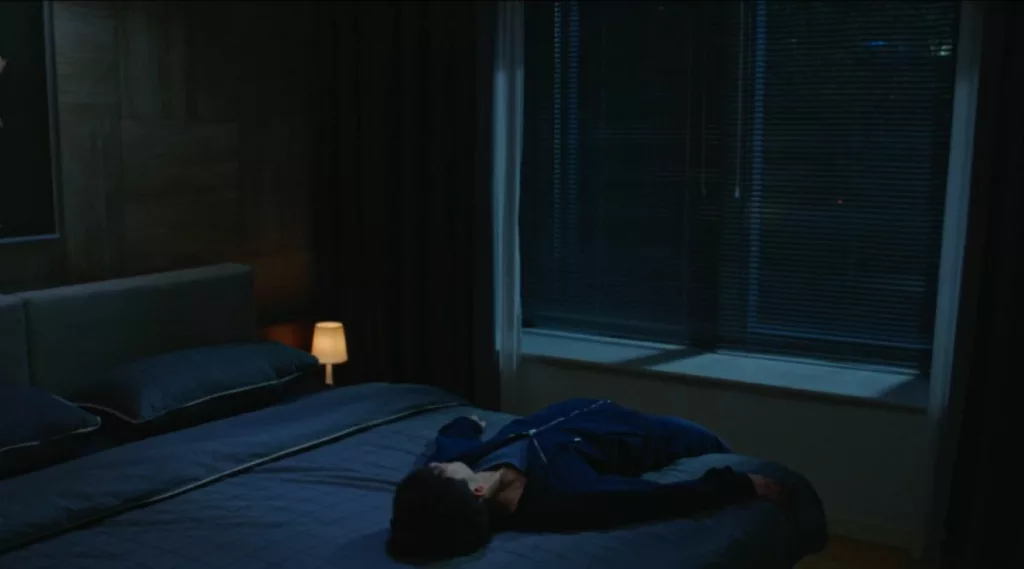In his first feature film, Chinese director Jianjie Lin delivers an atmospheric thriller that will keep audiences guessing. Brief History of a Family centers around a quiet high schooler, Yan Shuo, who gradually integrates himself into the household of his wealthier classmate. What seems like a family infiltration story soon reveals itself to be far more complex.
When Shuo gets hit in the head by Wei at school, Wei invites him back to his fancy apartment to make amends. But as Shuo cozies up to Wei’s parents, they start to prefer this polite, ambitious boy over their video game-loving son. The suspense ratchets up as this interloper becomes almost another child to them. Yet Lin consistently subverts the familiar thriller set-up, exploring resonant themes around Chinese parental pressure, the erstwhile one-child policy, and universal family tensions.
With assured direction and visual panache, Lin announces himself as a filmmaker to watch. Brief History encapsulates the discord between tradition and modernity in contemporary Chinese family dynamics. By playing with genre conventions, Lin crafts both an emotionally astute family drama and a compelling, if enigmatic, slow-burning mystery. This skilled debut brims with atmospheric style and thematic richness.
Arresting Imagery Immerses Us in Domestic Unease
From the very first frame, director Jianjie Lin announces his commanding visual voice. With cinematographer Jiahao Zhang, Lin employs creative framing and expressive use of light to build an atmosphere of quiet suspense. Much of the film takes place in the sleek modernist apartment of the Tu family, starkly lit to accentuate the cold emptiness. Sharply symmetrical shots reflect the Microscope metaphor that runs through the film, making us feel like scientists observing this family unit as if they’re specimens.
As Shuo insinuates himself more into their lives, Lin increasingly isolates him in silhouette or behind glass, heightening the sense that this interloper remains an unknowable outsider gazing in. Striking shadows, flared light, and slo-mo scenes add to the stylized, tense aesthetic. At times, Lin even ventures into full-on dream imagery as emotions reach a fever pitch. While slightly distracting, these expressionistic flourishes showcase his willingness to take risks visually.
Throughout it all, composer Toke Brorson Odin’s unsettling score thrums with ominous anticipation. The off-kilter piano and shuddering strings sound almost like the apartment itself – pristine on the surface but pulsating with repressed alarms. The discordant music works hand-in-hand with the images to create an ambiance of domestic unease and inevitable upheaval. Both affirmatively announce a director with confidence in the tools of cinema to shape our experience. With such visual assurance right out the gate, Lin seems poised to craft even more indelible mindscapes moving forward.
“Dive into a dystopian future where sociopolitical commentary meets supernatural horror in our History of Evil review. Witness how prejudice and hate can transcend generations and impact the very fabric of society.”
Compelling Character Studies Mine Family Tensions
At the heart of Brief History lies an array of complex, flawed characters brought to life through strong performances. As the enigmatic Shuo, newcomer Xilun Sun delivers a remarkably self-assured turn, projecting volumes while barely betraying any discernible emotion. His impenetrable veneer means we never fully grasp Shuo’s motives, yet Sun ensures we still feel glimmers of his longing and vulnerability underneath the mask.
As Shuo gradually ingratiates himself to the Tu family, the actors capture all the messy domestic tensions bubbling beneath their sleek modern lifestyle. Feng Zu is excellent as the exacting patriarch, his barely concealed disappointment with his son expertly clashing with his growing mentorship of this stranger. As the sympathetic mother clinging to ghosts of the past, Ke-Yu Guo movingly essays the film’s sociopolitical backdrop in glances and silences. And while underwritten, Muran Lin brings out the entitled bitterness of a fuerdai forced to compete for parental affection.
Together, the ensemble inhabits roles reflective of Chinese social hierarchy and traditional family values strained by modern realities. Their interactions bristle with resentment, regret and a sorrowful inability to articulate their true feelings. Through this vivid characterization, Lin explores the universal pains of unmet expectations and children forever falling short of loving yet implacable parents. Carried by these stirring performances, Brief History lays bare the unspoken rifts of family life across generations and cultures.
Deft Genre Subversion Explores Intergenerational Tensions
On the surface, Brief History employs familiar thriller conventions – an interloper infiltrating an unsuspecting family and causing discord. But Lin consistently upends expectations, crafting a morally ambiguous exploration of societal pressures shaping Chinese parental roles. The one-child policy haunts the story, its recent dissolution allowing long-buried family wounds to resurface. Bereft of a daughter, the Tus immediately lavish attention on this stranger, their hollow platitudes barely masking profound disappointment with their only son.
Yet the question of who is truly taking advantage remains murky throughout. The parents readily accept another chance at raising the perfect, studious child they crave, no coercion needed. Wei enjoys the freedom from criticism Shuo’s presence provides. And Shuo seizes an opportunity to escape his own traumatic home life. At times, the film suggests each damaged character finds in the other what had been lacking, making the eventual prognoses more complex.
In toying with the thriller setup, Lin scrutinizes the corroding effect of unrealized dreams and societal pressure on Chinese family dynamics. Parents burden their one child with crushing expectations, while said child retreats into video games and hoodies, bitter over duties thrust upon them. Each failure amplifies the gulf of understanding between generations. By crafting such ambiguous characters, Lin reveals the shared pain at the heart of these tensions.
With its genre subversions and ominous dream imagery, Brief History simmers with uneasy tension right up until its cryptic finale. Some may crave a less enigmatic ending, but the constant upending of expectations reflects the film’s central theme – family bonds defy any simple analysis. In his audacious debut, Lin deconstructs cultural tropes around parental roles and generational divides, culminating in an evocative tone poem about the Universality of family longing and reconciliation.
An Auspicious Debut, If Still Rough Around the Edges
While undeniably assured as a first feature, Brief History possesses flaws common to freshman efforts. Some may find the oblique ending unsatisfying, lacking definitive resolutions after a simmering buildup. And while the parents receive elaborate shaping, the two teens at the story’s center feel underdeveloped. Beyond surface-level attitudes, Wei and Yan Shuo remain ciphers, denying us a multilayered understanding of their bond.
Lin also sporadically tosses in impressionistic interludes that veer stylistically from the tense realism. As dynamic showcases for his visual inventiveness, these expressionistic bursts demonstrate a bold creative spirit. Yet the disjointed dream imagery can temporarily subvert the thriller’s immersive spell.
Still, these missteps hardly detract from Lin’s riveting vision. Brief History heralds the arrival of a director boasting both technical bravado and incisive sociocultural observation. If slightly undone by debut overeagerness, Lin exhibits the sensibility and skills of a natural-born cinematic storyteller. One imagines these promising gifts becoming more refined and confident as his career progresses. But there’s no discounting his precocious artistry already impressively on display here.
A Stunning Debut That Signals an Emerging Talent
With Brief History of a Family, Jianjie Lin announces himself as a director to watch. This suspenseful feature debut showcases his technical artistry through arresting visuals saturated with atmospheric unease. His bold subversions of thriller conventions reveal a filmmaker already testing boundaries. And in just 99 minutes, Lin explores resonant themes around societal expectations, intergenerational divide, and the Universality of family bonds.
Brief History also introduces a promising lead talent in actor Xilun Sun, whose cryptic performance oozes with hidden depths. And by crafting such a distinct aesthetic vision right out the gate, Lin displays an authority over cinematic tools to immerse us in his tense, dreamy worlds.
Of course, Lin’s freshman effort suffers occasional missteps of ambition, including an opaque ending and distracted teen characters. But these flaws pale next to his creative verve and penetrating emotional insight. With such an assured feature debut, Jianjie Lin emerges as a director boasting singular sensibility, sociocultural observation and suspenseful audacity. Brief History heralds the start of what promises to be a distinguished career weaving societal commentary into genre subversion.
The Review
Brief History of a Family
With his stunning feature debut Brief History of a Family, director Jianjie Lin announces himself as an emerging filmmaking talent to watch. This slow-burning thriller simmers with artistic confidence and thematic depth. Through arresting visuals and nuanced social commentary, Lin provides a sensitive portrayal of family dynamics strained by generational divides and societal pressures. Anchored by standout lead performances, the film’s ambiguities and genre subversions speak to universal emotional truths. Skillfully balancing suspense with introspection, Brief History heralds the arrival of a director boasting acute sociocultural insight and audacious formal daring. This haunting tale of domestic discord and filial longing leaves an indelible impression.
PROS
- Strong directorial debut for Jianjie Lin
- Unique visual style and cinematography
- Complex exploration of family dynamics
- Ambiguous narrative and genre subversion
- Resonant themes related to Chinese culture
- Great leading performance by Xilun Sun
CONS
- The ending may frustrate some viewers
- The two teenage characters lack depth
- Disjointed dreamlike sequences
- More cultural specificity cut for international appeal




















































